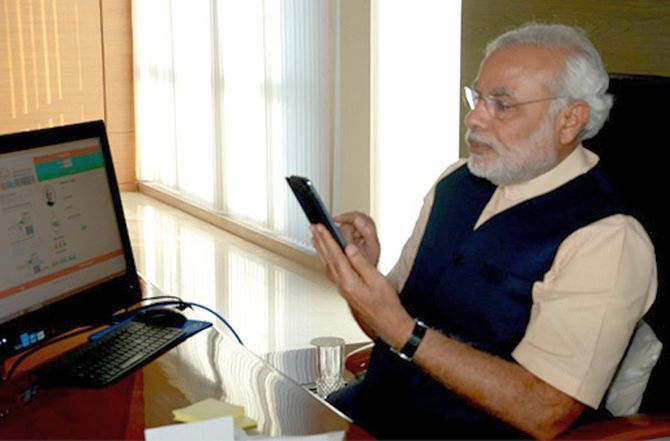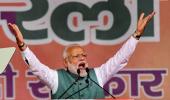Within 24 hours of the announcement of poll dates, traction on poll-based apps has risen drastically, report Karan Choudhury and Neha Alawadhi.

Want to prepare a report card of your area's member of legislative assembly or member of Parliament? There is an app for it. Angry at the state of your constituency, there is a web-based platform which will help you reach out to the right people.
Connecting with more than 350 million Indians this poll season, more than 50 mobile applications and web-based platforms are planning to tap into the election fever as an alternative business model.
Taking out full-page advertisements in national dailies, these apps, which till now were operating from the sidelines, are now making their presence felt. With the election dates being announced, traction on poll-based apps has risen drastically. According to tech experts, within 24 hours of the announcement of poll dates, there has been a sudden increase in downloads of various election-based as well as political party apps.
Apps such as NaMo, the official mobile application of Prime Minister Narendra Modi, have seen a 10 per cent increase in the number of downloads, which now stands at over 10 million.
Many are bringing out their monetisation plans as they believe their revenues will reach an all-time high during this period. Apps such as Neta believe this election would help their app become the ultimate governance tool.
“Over 20 million verified voters have already rated their political representatives on the platform. In order to ensure a pertinent sample size, we use multiple mediums like the app, IVR calls, and SMS to gather data on evolving political inclinations,” said Pratham Mittal, founder, Neta app. The app claims to have seen an 18 per cent jump in user count since the announcement of the election dates.
The company had charted out a post plan as well. “Currently, we are focused on expanding our user base and strengthening the product. There are many ways in which we can monetise the platform, like running ads or expanding to new democracies,” added Mittal.
Over the last one year, platforms are also seeing more citizen involvement in policy-based issues. Civis, a web-based platform which enables citizens to understand laws and easily share their feedback on these laws with the government, has seen traction increase.
“Since our platform’s launch in September 2018, we have a community of 1,000-plus citizens, of which we have 200 active users on our platform,” said Antaraa Vasudev, founder, Civis.
Industry experts claim all these issues of data collection and use will be dealt with after the data protection law comes into effect.
According to experts, these firms are a database for understanding voter sentiments at a micro-level and political parties seem to be keen in tie-ups to get a clearer ground-level picture.
“Multiple discussions are in progress to enable politicians, candidates, and parties to use the platform for citizen outreach and feedback,” said Amit Bansal, founder and chief executive officer, NextElection.
Experts believe these apps are free to use this data to work with political parties due to the absence of a data protection law. “In the Information Technology Act, there is only one provision that deals with data -- Section 43(A),” said Sarvjeet Singh, Centre for Communication Governance, National Law University.











